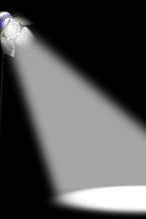Responsibility for floodlights
- Details
 Elizabeth Bower examines a judge’s rejection of a personal injury claimant’s contention that two councils had a duty to maintain a floodlight under a bridge.
Elizabeth Bower examines a judge’s rejection of a personal injury claimant’s contention that two councils had a duty to maintain a floodlight under a bridge.
In Palwankar v Lancashire County Council & Lancaster City Council (Lancaster County Court - His Honour Judge Baker) the claimant alleged that she was walking under the arch of a bridge when she stumbled and fell on unlit steps sustaining a personal injury. A floodlight provided under the bridge was not working.
Both defendants denied responsibility for the said light at the accident site, and in any event pleaded that there was a discretionary power as opposed to a duty to provide lighting on the highway.
The claimant disagreed arguing that one of the defendants had erected the floodlight and therefore one or both of the defendants had a duty under common law to maintain it. The fact that the light was subsequently repaired, they argued, indicated that a party had assumed responsibility for the light.
The judge found against the claimant on the basis that nonfeasance does not amount to a negligence. If there is a misfeasance, this can give rise to liability. Not fixing a light the judge declared was nonfeasance. The accident was not reasonably foreseeable, the arch could not have been as dark as the claimant's witnesses recalled.
Furthermore, there was not a sufficient degree of proximity between the claimant and the defendants, the judge said, commenting: "If I find that there was a sufficient degree of proximity between the claimant and the defendant, I would have to find that there is proximity between the Defendants and the entire world".
In conclusion, he noted that he had found no convincing evidence that the reason for the light was to illuminate the steps as opposed to providing some light to improve the area.
In addition, he dismissed the claimant's ambitious argument that by repairing the light, either defendant had accepted responsibility for maintenance, and by failing to inspect, the defendants had committed a misfeasance. He did not find that a failure to inspect was a misfeasance.
The claim was therefore dismissed.
Comment
This case reinforces the legal principle that local authorities do not owe a duty to provide street lighting. The judge applied and adopted the judgment from McCabe v Cheshire West and Chester BC and BAM Nuttall Ltd. The facts of the two cases are similar, in this case the local authority was held not to be liable for the failure to maintain a street lamp positioned so as to light a set of steps forming part of the maintained highway.
The judge found that liability could only be established against the highway authority if it had performed a positive act that created a danger. The defendants had done nothing to create a danger, indeed they had attempted to reduce the danger by providing street lighting.
Elizabeth Bower is a partner at Forbes Solicitors. She can be contacted on 01254 222411 or
Sponsored articles
Walker Morris supports Tower Hamlets Council in first known Remediation Contribution Order application issued by local authority
Unlocking legal talent
Commercial Lawyer
Legal Director - Government and Public Sector
Solicitor - Contracts and Procurement
Locums
Poll
03-02-2026 2:00 pm
12-02-2026 10:00 am









































